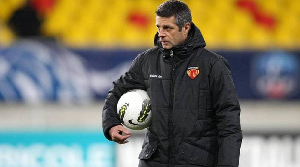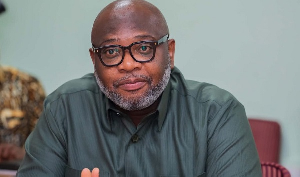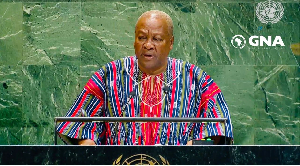The main factor in petroleum product prices varying across countries of the world is government policy. For example, many European countries tax gasoline heavily. Thus, the ex-pump price of gasoline is made up of 60% - 75% of taxes built in the price per litre.
Price per litre ranges from US$2 - US$2.63 across the continent with Netherlands, Norway, UK, Italy, France and Turkey topping the list with US$2.63. The heavy taxes collected are used to improve, expand and maintain the public transport system.
On the other hand in a few Latin America and Middle East countries such as Venezuela and Saudi Arabia, oil is produced by government owned companies and local petroleum prices are kept low, as a benefit to their countries’ citizens. For example, price per litre of gasoline in Venezuela is 5 cents, 20 cents in Saudi Arabia, 10 cents in Iran and 60 cents in Egypt. (Ref.: my travelcost.com).
In between the two extremes are countries that see the imposition of taxes on petroleum products as a source of mobilizing huge revenue for their governments because taxes on petroleum products are easier to collect than other forms of taxes after PAYE levied on workers. Ghana falls into this category.
The current debate ranging on about petroleum subsidies raises the question whether the government actually pays subsidies or it is a myth or a hoax. The reason why I pose this question is, prices Ghanaians pay for petroleum products already are on the level with prices in Russia and more than what the USA citizens pay. The price per litre of gasoline in Russia is US$1.03 same as in Ghana and 92 cents in the USA (Ref. My travelcost.com).
Before 2001 nobody heard about subsidies on petroleum products in Ghana for a long time. Tema Oil Refinery (TOR) was responsible for importation of crude oil, refining it into finish products and seling them to oil marketing companies (OMCS) for distribution. Before the establishment of TOR by Dr. Kwame Nkrumah, these OMCS were foreign and they imported the finished products and stored them in their own depots. TOR was also the sole importer of refined products to augment shortfalls especially when it had to shutdown for routine maintenance.
With the change of government in 2001 and the introduction of deregulation of the downstream petroleum industry we began to hear about subsidies on petroleum products again. Deregulation has taken away the monopoly TOR and the foreign OMCs used to enjoy. The floodgates were opened for the proliferation of several local oil marketing companies and Bulk Oil Importers of finished products. Implication of deregulation is importation of finished products at higher cost than if crude oil was imported and refined locally. Pricing on Production cost model changed to Import Parity Pricing Model to align prices to global levels. Thus the argument always raised for hikes in petroleum prices apart from the perceived and fictitious under recovery of cost are depreciation in the cedi and rising crude oil prices on the world market.
When Mr. Alex Mould hinted the increase in fuel prices using the above reasons, Dr. Wereko Bobbey and Mr. Kwasi Pratt Jr. challenged that, there has never been subsidies on petroleum products in Ghana and that figures should be provided to prove.
The NPA boss, Governor of the Bank of Ghana and the Minister of Finance said a total of GH¢1.2 billion was paid on subsidies to OMCs in 2012 and it is estimated GH¢2.4 billion would be paid in 2013 if prices were not increased. I find this assertion incredibly credulous. Is the rate of consumption of petroleum products increasing by 100% in 2013? Or, the number of registered vehicles and cars double in the year instantly to give rise to consumption which would warrant payment of that amount?
Reasons being cited by the Minister of Finance, the NPA boss and the Governor of the Bank of Ghana to support the increases are not true. Is the CIF cost of landing the petroleum products plus margins and handling charges greater than the ex-refinery prices approved by NPA to be charged by the Bulk Oil Importers? Or, is the ex-refinery price greater than the selling prices? If none of these two situations is happening there cannot be subsidies on petroleum products.
I, challenge the NPA boss to come out clean with all the break down and composition of the Ex-Refinery prices of the entire petroleum products in the name of transparency for all to see and comprehend.
After a thorough analysis, what the NPA and the government is referring to as subsidies are the differences between the Import Parity prices fictitiously determined and the Ex pump prices. Import parity pricing assumes what the petroleum products would sell at the pump in Europe at the retail petrol stations.
The Ex-pump prices are determined by adjusting the Import Parity prices which ensures the operators a comfortable profit margin they want. For example, the Import Parity price for super petrol was calculated to be USD 1.16 and adjusted to USD 1.07 to be the Ex-pump price. The difference of 13 cents, fictitiously created subsidy which the Bulk Oil Importers claimed they would have earned operating in Europe is what they want Government to pay as under recovery of cost. Complete deregulation would mean Ghanaians would have to pay prices comparable to those in Europe. This is a corporate fraud against the people of Ghana back by law passed by our Parliament. This is what Professors of law and economics come on air to defend as justifiable.
Depreciation of the cedi is another flimsy claim they made to support their argument to increase the fuel prices. Brent Crude oil that is used in determining the price, after reaching its peak of US$125 and above in 2010, the price of it has been falling, and currently fluctuates between US$110 -115. The fall of US$10 per barrel has offset any cost impact caused by the depreciation of the cedi from 1.50 to 1.90 to the dollar.
Diesel fuel is the main fuel for industry, transportation and the farming sectors. Any increase in its price has a negative cascading effect in the cost of daily living of all people, both rich and poor, but the poor suffers most.
I am surprised the Minister of Finance does not know this, and says the subsidies have not been properly targeted, if there is any at all. If they want to match fuel prices to international levels, why not also match the minimum wages to that level too?
It is only the Members of Parliament, Ministers and other Government Official who have attempted to match their salaries and other benefits to international levels - Animal Farm indeed. Minimum wages in Europe, USA and Canada are paid by the hour. For example, in Britain minimum wage per hour is about $8, one can buy about 4 litres with an hour’s wage. In Ghana a day’s minimum wage cannot buy you a gallon of petrol!
The current price levels of US$1.07 per litre or US$4.81 per gallon for super and US$1.08 per litre or US$4.86 per gallon for diesel makes them more expensive than in the USA, Russia, Angola, Sudan, Mexico and Egypt, to name a few. Are these countries too subsidizing their petroleum products and paying billions of dollars to OMCs in their countries?
A close study of the current situation indicates that it is the Bulk Oil Importers who are responsible for pursuing these price hikes. Their surrogates were the one who started calling for price increases and complete deregulation and aligning petrol prices to international price levels forgetting that economic conditions vary from one country to the other.
Matching fuel prices to global level translates into soaring profits to the Private Bulk Oil Importers. That is the real game.
It is vested interests of the Bulk Oil Importers that is at the root cause of the price increases. Consciously concealing the truth, they painted a sorrowful and miserable picture of government spending so much money on subsidies, thus denying resources for development.
Surprisingly, government officials, the elite in society, functionaries of the ruling party and the opposition have been caught up in this propaganda asking Ghanaians to bite the bullet in the interest of Ghana. Big money is at the centre of this game.
An analysis of the current price build up of the various products points out to my assertion. For example, the 34 pesewas increase in gasoline and diesel prices, 26.83 pesewas went to the Bulk Oil Importers and 8.17 pesewas was shared between BOST, OMCs and Station Retailers. The 61 pesewas increase in LPG all went to the Bulk Oil Importers.
Surprisingly, not a pesewa went into government purse even though ex-refinery prices of all the product went up. Excise duty which should increase remain the same; in fact, all government taxes remain static.
The NPA boss was only doing the bidding of the Bulk Oil Importers. There are no real subsidies on the petroleum products in Ghana. The cost of LPG at 88 cents per kilo is the highest in the world and he still tells us that there is 66% subsidy on it? If the so called subsidy is removed, which he has called for, then Ghanaians would have to pay $2.588 per kilo for the product!
I challenge the Minister of Finance, Governor of the Bank of Ghana and the NPA boss to publish the list of beneficiaries of the GH¢1.5 billion payment.
If it were true these payments were made I conclude it is a fraud and day-light robbery committed against the people of Ghana.
Mr. President, I urge you to properly investigate this matter by bringing independent International Auditors from outside to do this work. Mr. President, please hold and stop the impending price increases in the next two weeks and any further payments, if it is true Government has been paying this so called subsidies, to save your Government embarrassment from the Ghanaian masses. There are no real subsidies on petroleum products in this country.
Ghanaians are paying fair prices already. Dr. Wereko Brobbey who was once an Energy Advisor to this country had said it all, and everybody should believe him. Mr. President beware of the people surrounding you and advising you on this oil and gas matters; they all have vested personal interests. Ghana is secondary to them.
By: Solomon Kwawukume
solomon.kwawukume@yahoo.com
Author: Ghana’s Oil & Gas Discoveries: Towards Full Maximum Benefits
Opinions of Saturday, 23 February 2013
Columnist: Kwawukume, Solomon












